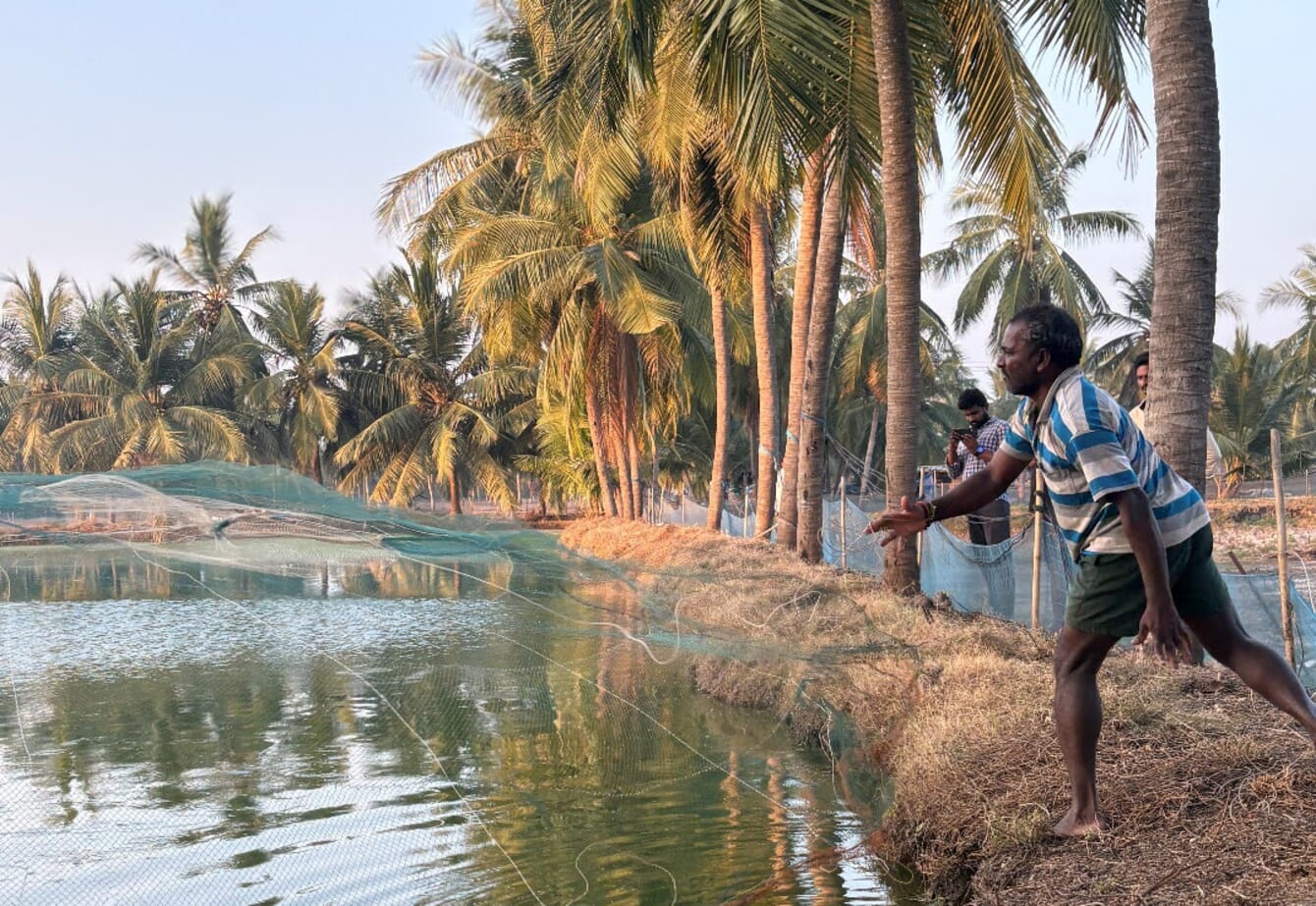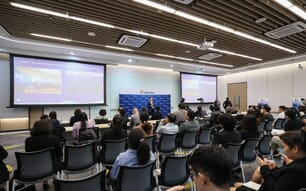
© ASC
The Aquaculture Stewardship Council (ASC) and Sustainable Fisheries Partnership (SFP) have launched a roadmap aimed at driving landscape-level improvements in aquaculture. Developed through a Walmart Foundation-funded project focused on the Indian shrimp sector in Andhra Pradesh, the roadmap provides a framework to align stakeholders across regions and support environmental improvements at scale.
The project, entitled Building a foundation for landscape-level improvements in India, is part of a broader effort to address the carbon and biodiversity impacts of aquaculture by motivating responsible practices at scale. It combines field learning from India’s farmed shrimp industry with global sustainability strategies to create a model that could be applied in other regions and commodities.
“Landscape approaches elevate the environmental and social performance of the region, reducing barriers and providing farmers with the opportunities to drive improvements, but this must rely on local expertise and organisations working in the sector. Demonstrating these collective improvements will deliver impacts at scale,” said Jill Swasey, ASC director of impacts, in a press release.
Why a Landscape Approach Matters
Aquaculture remains one of the fastest-growing food sectors globally, but only 51 percent is currently certified or rated against recognized sustainability standards. Many existing approaches struggle to address the fragmented nature of small-scale production systems, especially in regions with limited regulatory oversight and land tenure clarity.
The landscape approach seeks to address this by promoting collaboration among producers, government agencies, NGOs, and supply chain actors within shared geographies. It complements existing certification schemes and aims to create inclusive, adaptive models for aquaculture improvement.
“Everything we do in-country should be done by local institutions, and there is tremendous local capacity in Andhra Pradesh. Our role is just to connect the dots and work through established local players – they will be there long after you’re gone,” said SFP chief executive officer Jim Cannon.
Case in point: shrimp farming in Andhra Pradesh
The state of Andhra Pradesh has become a key player, producing nearly 1 million tonnes of shrimp annually, primarily through smallholder farms under two hectares.
Andhra Pradesh’s stated ambition to increase its aquaculture area from 400,000 to 1 million acres by 2030 will bring rapid growth but also increased pressure on ecosystems and local communities. This roadmap uses shrimp farming in Andhra Pradesh as a pilot application, offering insights into how landscape-level approaches can address these complex challenges.
By integrating sustainability across the region and strengthening local governance, the roadmap ensures long-term resilience for the environment, the shrimp industry and the communities that depend on it.
The roadmap includes:
- A Step-by-Step Framework: Practical guidance for developing and implementing landscape-level aquaculture improvement projects (AIPs), adaptable globally.
- Application Case Study: Lessons from implementing the approach in Andhra Pradesh.
- Multi-Stakeholder and Holistic Focus: Encouraging collaboration across the supply chain, civil society and government.
- Integration with Global Frameworks: Drawing from leading bodies of work such as the Global Sustainable Aquaculture Roadmap and the Guidelines for Seafood Jurisdictional Initiatives.
This initiative marks a shift from farm-level improvements to systems-level change, recognising that shared landscapes – and the people and ecosystems within them – are interconnected. By aligning incentives, decreasing risk and input costs, and improving shrimp survival through better practices and technology, this model offers a scalable and impactful solution.
“In Andhra Pradesh, it was inspiring to see a coalition of local social, environmental and aquaculture experts come together to lay the groundwork for holistic improvements to the farmed shrimp sector,” said SFP aquaculture information manager, Paul Bulcock.


